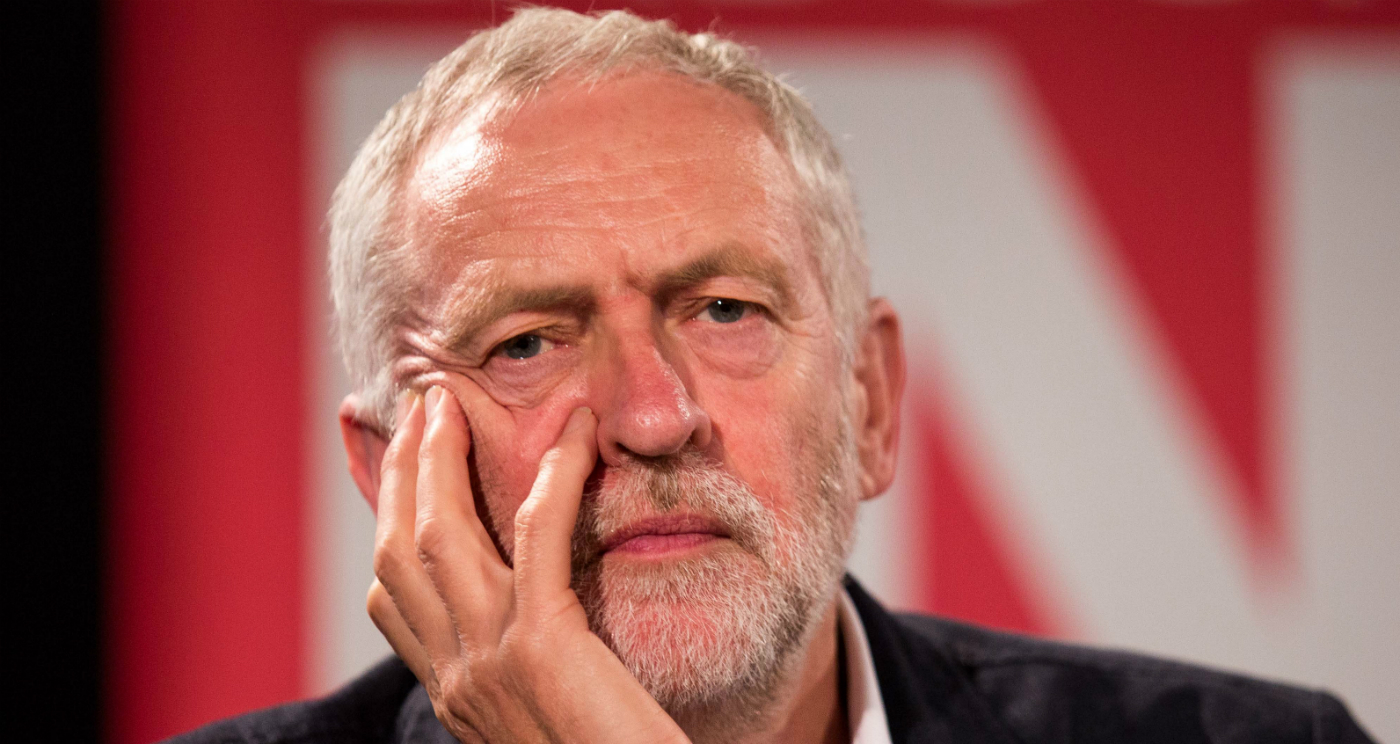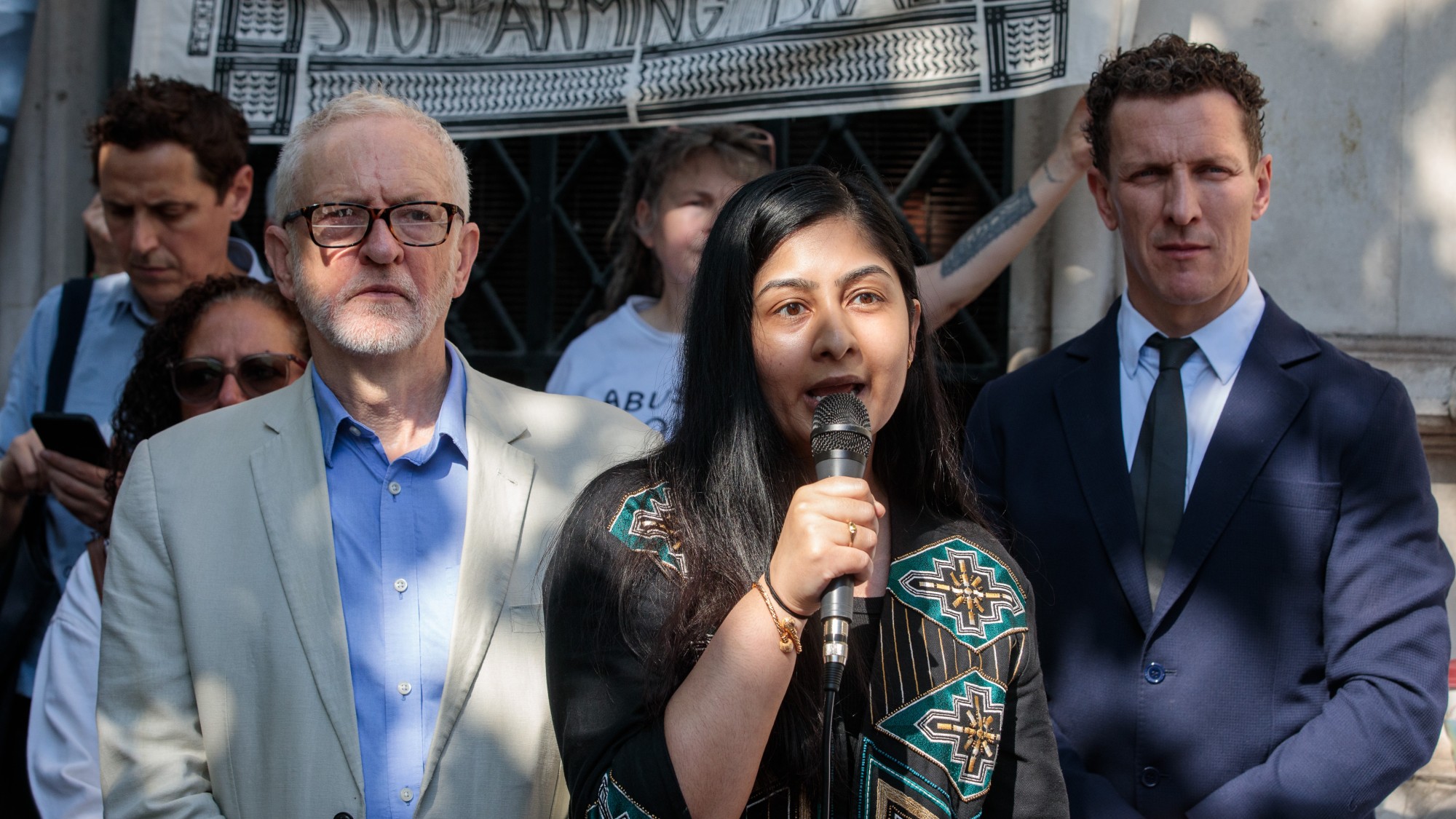Theresa May’s letter to Jeremy Corbyn: reading between the lines
Conciliatory tone sparks Brexiteer fears that PM might soften her position to push deal through Parliament

A free daily email with the biggest news stories of the day – and the best features from TheWeek.com
You are now subscribed
Your newsletter sign-up was successful
Theresa May has responded to Jeremy Corbyn’s five demands for a Brexit deal, with the prime minister welcoming more talks with the Labour Party but querying his call for the UK to remain in the customs union.
The Labour leader wrote to May last week saying he would back her EU withdrawal deal if she made five legally binding commitments, including a permanent UK-wide customs union.
The PM’s unusually conciliatory response has sparked concern among Tory Eurosceptics that she might soften her position to secure the opposition party’s backing in Parliament.
The Week
Escape your echo chamber. Get the facts behind the news, plus analysis from multiple perspectives.

Sign up for The Week's Free Newsletters
From our morning news briefing to a weekly Good News Newsletter, get the best of The Week delivered directly to your inbox.
From our morning news briefing to a weekly Good News Newsletter, get the best of The Week delivered directly to your inbox.
Here are some of the key lines and how they have been interpreted.
The vague customs union rejection
“I am not clear why you believe it would be preferable to seek a say in future EU trade deals rather than the ability to strike our own deals?”
May’s failure to explicitly rule out the prospect of the UK staying in a customs union “alarmed Tory Eurosceptics, who fear the prime minister could ultimately change tack”, says The Daily Telegraph.
A free daily email with the biggest news stories of the day – and the best features from TheWeek.com
Chief Secretary to the Treasury Liz Truss hinted she would resign if the UK stayed in a customs union, while backbench Brexiteer Jacob Rees-Mogg said May should have ruled out the idea. Meanwhile, former foreign secretary Boris Johnson warned the PM not to bow down in the face of Corbyn’s attempt to “frustrate Brexit very largely”.
In response, a No. 10 source said: “It is nonsense to suggest the letter leaves the door open to his customs union idea. We are not considering it. We must have an independent trade policy.”
The second referendum jibe
“It is good to see that we agree that the UK should leave the European Union with a deal and that the urgent task at hand is to find a deal that honours our commitments to the people of Northern Ireland, can command support in Parliament and can be negotiated with the EU - not to seek an election or second referendum.”
May appears to be agreeing with Corbyn on the way forward for Brexit, but also highlights the fact that he did not mention a second EU referendum in his original letter.
Sky News says her subtle “jibe” is “likely to rile Labour MPs and members”, as pro-Remain backbenchers were hoping to persuade the leadership to unequivocally back a Final Say referendum.
The olive branch
“We have also made commitments on workers’ rights and environmental protections and we are examining opportunities to provide further financial support to communities that feel left behind.”
The prime minister insisted existing rights for workers will be protected, and pointed out that the Government already supports participation in EU programmes covering areas such as environmental protections. May dismissed the call for full alignment with the EU but said that a Commons vote could be held every time they changed.
The Daily Mirror described the move as an “olive branch as she desperately seeks backing for her pact after its crushing Commons defeat last month”.
Prisons Minister Rory Stewart told BBC Breakfast: “What she is saying is that we have a lot if common ground, a lot more common ground perhaps than people have acknowledged, on things like environmental protections, workers’ rights, making sure that we get investment into areas of the country which haven’t done as well out of the last few years as other parts of the country.”
He added: “The maths suggest that to get this through we’re going to need support from all around the house.”
Running down the clock
“I hope you will therefore agree with me that seeking alternative arrangements to the current backstop is a necessary step to finding a deal that can command support in Parliament. One of the things I would like our teams to discuss is the exact nature of those alternative arrangements.”
May welcomed more talks with Labour, particularly on possible alternatives to the Irish backstop, although some commentators claim she is simply trying to “run down the clock”.
“The Tory leader is set to deny MPs a fresh ‘meaningful vote’ until next month - edging closer to the March 29 withdrawal deadline,” says the Mirror.
Shadow Brexit secretary Keir Starmer has accused May of “pretending to make progress while actually running the clock down” so that she can offer MPs a “binary choice”: her deal or no deal.
Starmer told The Sunday Times that Labour is preparing to introduce an amendment to force her to put her deal before Parliament again by 26 February.
-
 Political cartoons for February 20
Political cartoons for February 20Cartoons Friday’s political cartoons include just the ice, winter games, and more
-
 Sepsis ‘breakthrough’: the world’s first targeted treatment?
Sepsis ‘breakthrough’: the world’s first targeted treatment?The Explainer New drug could reverse effects of sepsis, rather than trying to treat infection with antibiotics
-
 James Van Der Beek obituary: fresh-faced Dawson’s Creek star
James Van Der Beek obituary: fresh-faced Dawson’s Creek starIn The Spotlight Van Der Beek fronted one of the most successful teen dramas of the 90s – but his Dawson fame proved a double-edged sword
-
 How corrupt is the UK?
How corrupt is the UK?The Explainer Decline in standards ‘risks becoming a defining feature of our political culture’ as Britain falls to lowest ever score on global index
-
 The high street: Britain’s next political battleground?
The high street: Britain’s next political battleground?In the Spotlight Mass closure of shops and influx of organised crime are fuelling voter anger, and offer an opening for Reform UK
-
 Biggest political break-ups and make-ups of 2025
Biggest political break-ups and make-ups of 2025The Explainer From Trump and Musk to the UK and the EU, Christmas wouldn’t be Christmas without a round-up of the year’s relationship drama
-
 ‘The menu’s other highlights smack of the surreal’
‘The menu’s other highlights smack of the surreal’Instant Opinion Opinion, comment and editorials of the day
-
 Is a Reform-Tory pact becoming more likely?
Is a Reform-Tory pact becoming more likely?Today’s Big Question Nigel Farage’s party is ahead in the polls but still falls well short of a Commons majority, while Conservatives are still losing MPs to Reform
-
 The launch of Your Party: how it could work
The launch of Your Party: how it could workThe Explainer Despite landmark decisions made over the party’s makeup at their first conference, core frustrations are ‘likely to only intensify in the near-future’
-
 Taking the low road: why the SNP is still standing strong
Taking the low road: why the SNP is still standing strongTalking Point Party is on track for a fifth consecutive victory in May’s Holyrood election, despite controversies and plummeting support
-
 Your Party: a Pythonesque shambles
Your Party: a Pythonesque shamblesTalking Point Comical disagreements within Jeremy Corbyn and Zarah Sultana's group highlight their precarious position